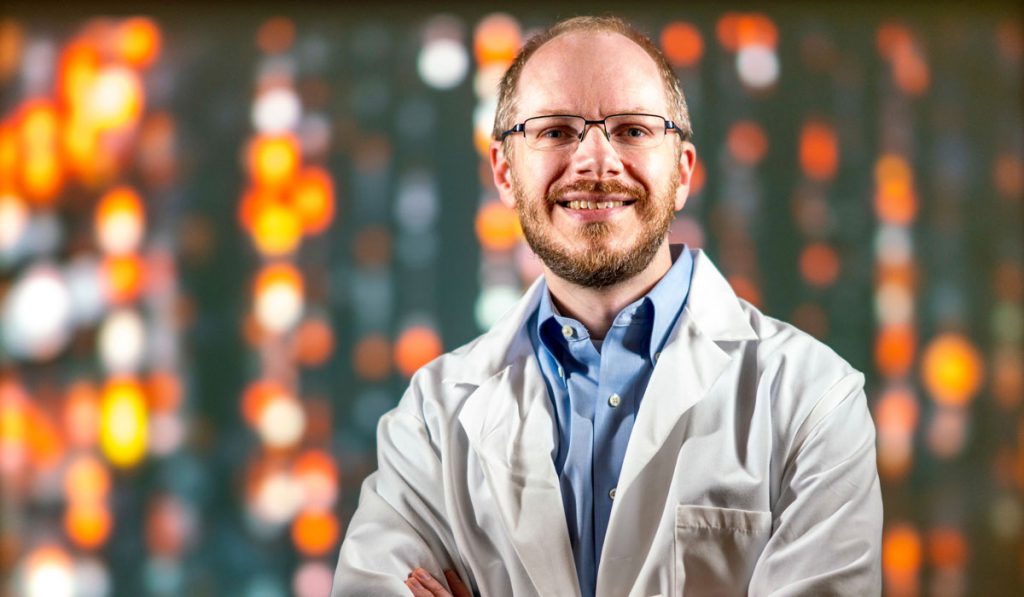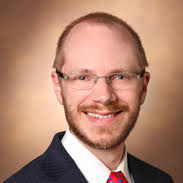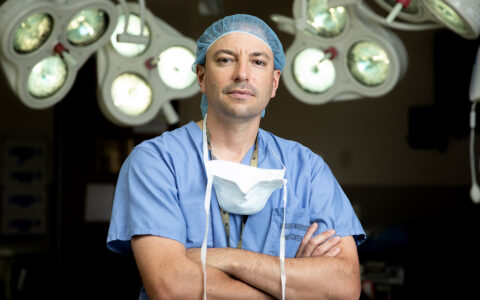One of the largest collaborative research programs to date has surpassed the one year mark. The NIH’s All of Us research team has now begun collecting EHR data, survey responses and biologic samples from more than 300,000 participants. Their target is one million.
The program also recently welcomed new leadership from Joshua Denny, M.D., now an adjunct professor of biomedical informatics at Vanderbilt University Medical Center. Denny previously headed the All of Us Data and Research Center (a partnership between Vanderbilt, the Broad Institute, Verily, and Columbia University), and will now serve as CEO of All of Us.
All of Us is amassing data to identify connections between human genomes and human health. “It’s a monumental effort. There are over 10 EHRs contributing data, plus the enrollment sites – and all the data need to be accessible.” Denny said.
“It’s a monumental effort… and all the data need to be accessible.”
A New Data Browser
Integrating data for All of Us is a massive undertaking. Participants provide survey responses – collected via a smartphone app or website – and visit a nearby clinic to provide biologic samples that are then shipped to a biobank at Mayo Clinic for analysis. The Data and Research Center has been coding and designing tech infrastructure to integrate deidentified data from (so far, 3.5 million) biologic samples with local EHRs and survey responses.
Said Denny, “We’re building a national infrastructure. There are now over 300 sites entering data through our web systems. We’re making one giant dataset out of it.”
The All of Us Data Browser is now live for researchers, participants and the general public to explore. It provides summary data and details about the All of Us participant community. A tool specifically for researchers, Workbench, is slated to launch in the upcoming months.
Focusing on Diversity
One of the key aspects of All of Us is its diverse participant population. Historically, biomedical research has focused on Caucasian populations, which can skew datasets. All of Us aims to support precision medicine for people of different backgrounds, ages and regions. As another major milestone, half of All of Us participants to date represent racial and ethnic minorities.
“The diversity angle is important. This is one of the largest genomic cohorts in the world, and it provides an opportunity to learn about people normally underrepresented in biomedical research,” Denny said.
Open-Access for Everyone
Another aspect that sets All of Us apart from other biomedical data hubs is its broad accessibility. The program “values researchers of all types as partners” and even crowdsources research questions. Its anonymized data are primed for citizen science projects, Denny said.
“We hope to have good ‘onramps’ for very diverse audiences. The data be used to support students of all levels, patient populations looking to learn more about their condition, in addition to higher-level biomedical research.”
“The data be used to support students of all levels, patient populations looking to learn more about their condition, in addition to higher-level biomedical research.”
Already, aggregate data available through the Data Browser can provide rationale to study a specific condition or population. Researchers can use it to highlight at-risk groups for funding applications, or to help drive recruitment efforts, as just a few examples.
Growing Possibilities
In the next phase of the program, researchers will be able to apply for access to the All of Us Workbench. They will complete an authentication process – including ethics training – to access more granular data.
The All of Us team is creating Workbench features that include project-specific workspaces that can be shared among collaborators, and a Cohort Builder to help researchers build specific studies. Statistical analysis software will be integrated directly in the Workbench, as well as a Jupyter Notebook feature to support analyses across other computer programming languages.
The All of Us program also plans to expand enrollment approaches to further reach minority populations, and to add data from additional survey questions to the browser, all to better focus research efforts.
“There has been a very real need for better precision medicine tools and approaches,” Denny said. “Now we’re up and running and growing rapidly.”





